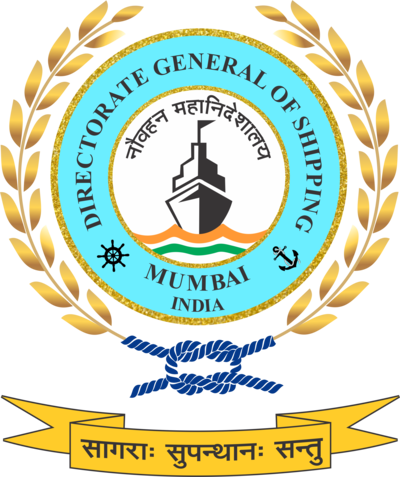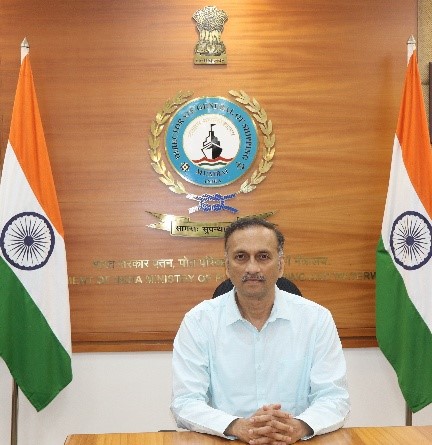Policies/Proposals & Related Studies
1. Extension and enhancement of the Subsidy Scheme for the Promotion of Flagging of Merchant Ships in India
Proposed Enhancements:
- Expansion of Scope: The scheme will be extended to include not just import contracts but also exports and coastal movements. This aims to ensure that Indian-flagged vessels have increased opportunities to participate in government-related cargo transport, both domestically and internationally.
- Subsidy Support: Indian shipping companies participating in global tenders for government cargo, including coastal and export movements, will receive targeted subsidies. This financial support is intended to reduce the cost disparity that Indian-flagged vessels face when competing with foreign vessels.
- Removal of Price Margin Constraints: To enhance the competitiveness of Indian-flagged vessels, the requirement for Indian companies to match within 20% of the lowest bid (L1) in tenders will be removed. This will enable Indian companies to participate on more equitable terms.
- Measures for Contracts of Affreightment (COAs): The proposal includes measures such as allocating a fixed proportion of cargo to Indian-flagged vessels or requiring foreign shipping companies to transport a portion of their cargo on Indian ships. This is aimed at creating additional opportunities for Indian vessels in COA tenders.

- Policies/Proposals and Related Studies
- Date : 28/04/2025
Expected Benefits:
- Increased Utilization of Indian-Flagged Vessels: By expanding the scope of the scheme, Indian vessels will have more opportunities to participate in global and domestic tenders, thereby increasing their market presence and utilization.
- Competitive Edge for Indian Vessels: The financial incentives and removal of restrictive tendering conditions will level the playing field for Indian-flagged vessels, enabling them to compete effectively with foreign counterparts.
- Boost to Indian Tonnage: Expanding participation in exports, coastal movements, and COAs will lead to a significant increase in Indian-flagged tonnage, strengthening India’s maritime industry and reducing reliance on foreign vessels.
- Reduced Forex Outflow: Enhanced utilization of Indian-flagged vessels for government cargo will reduce foreign exchange outflows, supporting the Indian economy.
- Promotion of Long-Term Investments: The extended scheme will encourage Indian shipping companies to invest in new vessels and expand their fleet, thereby fostering long-term growth and job creation in the maritime sector.
- Alignment with National Maritime Objectives: This proposal aligns with broader government initiatives such as Atmanirbhar Bharat by promoting self-reliance and strengthening the domestic shipping industry.
2. Tax related Issues & Proposals related to Indian Shipping
The Directorate General of Shipping (DGS) is actively working to address key tax-related issues impacting the competitiveness and operational efficiency of Indian-flagged vessels. The proposed measures aim to create a level playing field for Indian shipping companies and reduce their financial burdens, fostering growth and competitiveness in the global maritime industry.
- Double Taxation on MRO Services:
- Issue: Indian-flagged vessels undergoing Maintenance, Repair, and Overhaul (MRO) services outside India are subject to IGST on a reverse charge basis. However, upon their return to India, Customs imposes an additional 5% IGST on these services, resulting in double taxation.
- Proposal: Exempt Indian-flagged vessels from paying IGST on MRO services procured abroad to align with international norms and reduce financial burdens on the national fleet.
- Expected Benefit: This will eliminate double taxation, significantly lowering operational costs for Indian shipping companies and enhancing their global competitiveness.
- Taxation on Seafarers’ Wages:
- Issue: Indian seafarers on Indian-flagged coastal vessels are subject to income tax, while those employed on foreign ships in Indian waters are not taxed similarly. This disparity makes Indian companies less competitive and leads to migration of skilled seafarers to foreign vessels.
- Proposal: Exempt wages paid to Indian seafarers on Indian-flagged vessels from income tax, or ensure parity in tax treatment for all seafarers working in Indian waters.
- Expected Benefit: This will reduce operational costs for Indian companies, help retain skilled manpower, and boost the competitiveness of Indian-flagged vessels.
- High Cost of Bunker Fuel:
- Issue: Indian ships pay significantly higher costs for bunker fuel due to local taxes compared to foreign ships.
- Proposal: Rationalize bunker fuel rates to align with international prices by linking them to global benchmarks, such as Singapore Platts rates.
- Expected Benefit: This measure will reduce operational expenses, encourage bunkering in India, and improve the competitiveness of Indian-flagged vessels.
- Tonnage Tax Regime Adjustments:
- Issue: Indian shipping companies face higher tonnage tax rates and additional obligations compared to foreign competitors.
- Proposal: Revise the tonnage tax rules, including profit on sale of ships and interest on tonnage tax reserves, to provide relief and align with international best practices.
- Expected Benefit: This will enhance cash flow, support fleet modernization, and improve the financial viability of Indian shipping companies.
- Inability to Offset Input GST:
- Issue: Indian shipping companies are unable to offset input GST on certain goods and services procured across states, resulting in blocked credits.
- Proposal: Permit input GST credit on goods and services used by Indian shipping companies.
- Expected Benefit: This will lead to a free flow of input tax credits, reducing operational costs and enhancing efficiency.
- IGST on Imported Vessels:
- Issue: Indian-flagged vessels imported into India are subject to 5% IGST, unlike foreign-flagged vessels operating in Indian waters.
- Proposal: Exempt IGST on Indian-flagged vessels entering Indian waters for the first time.
- Expected Benefit: This will create a level playing field for Indian shipping companies and encourage the acquisition of vessels under the Indian flag.
- GST on Freight Services:
- Issue: GST is applied to freight services provided by Indian shipping companies for cargo transport between Indian ports, whereas foreign companies are exempt.
- Proposal: Remove GST for such services provided by Indian shipping companies.
- Expected Benefit: This will reduce costs, enhance competitiveness, and promote greater participation of Indian-flagged vessels in domestic and international trade.
By addressing these issues, DGS aims to create a more favorable fiscal environment for Indian shipping companies, encouraging investment, fleet expansion, and increased employment opportunities for Indian seafarers while enhancing India's standing in the global maritime sector.
3. Engagement of IIM Indore to carryout comprehensive study with regards to the DGS Order 06 of 2023 on Age Norms
The Directorate General of Shipping (DGS) issued DGS Order 06 of 2023 to regulate Age Norms and other Qualitative Parameters for Registration/operation of Vessels under Indian flag and, the foreign flag vessels required to apply for Licence under Sec 406 & 407 of The Merchant Shipping Act 1958.
In light of multiple representations and concerns raised by various stakeholders, IIM Indore has been engaged as a Consultant for carrying out the Comprehensive Study with regards to the DGS Order 06 of 2023 on Age Norms
- Study Objectives:
- Evaluate the economic, safety, environmental, and operational impacts of implementing vessel age restrictions.
- Identify challenges and opportunities for stakeholders, including shipowners, shipyards, and related sectors.
- Provide evidence-based recommendations on policy amendments and potential modifications of age norms to enhance Indian shipping competitiveness.
- Study Scope:
- Comprehensive policy review of the DGS Order on age norms and its intersection with international regulations.
- Assessment of the economic and financial impacts on stakeholders, including potential costs and compliance challenges.
- Safety, environmental, and operational assessments related to vessel aging and the adoption of green technologies.
- Stakeholder consultations for a holistic understanding of the policy's impact.
- Comparative analysis with international practices and recommendations for boosting Indian tonnage.
- Expected Outcomes:
- Recommendations for suitable amendments to the policy, strategies for enhancing national tonnage, and promotion of investment in the maritime sector.
- Development of incentive mechanisms to attract registration of vessels under the Indian flag and integration of environmental considerations into the age restriction policy.
4. Draft notification regarding Exemption from Licensing Requirement for Chartered Foreign Flag Vessels Notification, 2024
The Ministry of Ports, Shipping, and Waterways (MoPSW) has published a draft gazette notification proposing an exemption for foreign-flagged vessels chartered by Indian entities from licensing requirements under Section 406 of the Act, provided these vessels do not enter or operate in Indian waters during the charter period
The proposed exemption aims to simplify regulatory requirements and reduce operational barriers for Indian entities chartering foreign-flagged vessels. By exempting such vessels from licensing, provided they remain outside Indian waters, the policy seeks to enhance the competitiveness and operational flexibility of Indian shipping companies. This move is expected to facilitate faster deployment of vessels, reduce costs, and promote greater efficiency in international trade and maritime operations.
6. Proposed revocation of General Orders 1, 2, and 3 (2018)
The Directorate General of Shipping (DGS) has issued a Public Notice inviting stakeholder consultation on the proposed revocation of General Orders 1, 2, and 3 (2018). These orders, enacted under Section 407 of the Merchant Shipping Act, 1958, allowed foreign-flagged vessels chartered by foreign entities to participate in specified coastal trade activities, such as transporting EXIM trans-shipment containers, empty containers, agricultural products, and fertilizers, without requiring a DGS license. This consultation aims to assess the impact of these regulations on the Indian container shipping sector’s competitiveness, service costs, and overall market balance. The proposed revocation seeks to improve domestic shipping efficiency and foster a competitive and resilient shipping ecosystem.
7. Formation of a Working Group on Regulatory GAP Assessment in the Offshore Sector on a Volunteer Basis
The Directorate General of Shipping (DGS) has constituted a Working Group on a volunteer basis for the Regulatory GAP Assessment in the Offshore Sector through DGS Order No. 16 of 2024. This initiative aims to enhance safety, operational efficiency, and regulatory compliance within the offshore sector, focusing on training and competency requirements, especially for areas not covered under the STCW (Standards of Training, Certification, and Watchkeeping for Seafarers) Convention.
The Working Group, comprising diverse industry experts, will assess current training frameworks, identify gaps, suggest effective implementation and evaluation guidelines, and provide recommendations for regulatory improvements. Its primary objectives include developing targeted training modules, ensuring consistent safety and competency standards across the industry, and promoting uniform implementation and accountability in training and regulatory compliance.




























































